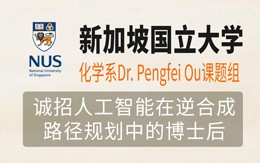Nature Communications ( IF 14.7 ) Pub Date : 2023-07-18 , DOI: 10.1038/s41467-023-39626-8
Laura C Motta 1, 2 , Jochen Autschbach 1
|
|
Actinide-ligand bonds with high multiplicities remain poorly understood. Decades ago, an effect known as 6p pushing from below (PFB) was proposed to enhance actinide covalency. A related effect—also poorly understood—is inverse trans influence (ITI). The present computational study of actinide-ligand covalent interactions with high bond multiplicities quantifies the energetic contributions from PFB and identifies a hitherto overlooked fourth bonding interaction for 2nd-row ligands in the studied organometallic systems. The latter are best described by a terminal O/N ligand exhibiting quadruple bonding interactions with the actinide. The 4th interaction may be characterized as a multi-center or charge-shift bond involving the trans ligand. It is shown in this work that the 4th bonding interaction is a manifestation of ITI, assisted by PFB, and provides a long-sought missing piece in the understanding of actinide chemistry.
中文翻译:

锕系元素反式影响与下方协同推动和多中心键合
具有高多重性的锕系配体键仍然知之甚少。几十年前,人们提出了一种称为6p 自下推(PFB) 的效应来增强锕系元素共价键。一个相关的效应(也知之甚少)是逆反效应(ITI)。目前对具有高键重数的锕系元素-配体共价相互作用的计算研究量化了PFB的能量贡献,并确定了所研究的有机金属系统中第二排配体迄今为止被忽视的第四键相互作用。后者最好的描述是末端 O/N 配体与锕系元素表现出四重键合相互作用。第四种相互作用的特征可以是涉及反式配体的多中心键或电荷转移键。这项工作表明,第四键相互作用是 ITI 的一种表现,在 PFB 的帮助下,并为理解锕系化学提供了长期寻找的缺失部分。

































 京公网安备 11010802027423号
京公网安备 11010802027423号